By Gary Begin
Sound Advantage Media
 You know the routine.
You know the routine.
Your radio station introduces a new morning show, and you sit back and wait for the magic to happen.
And you wait…and you wait.
Still, the audience doesn’t know them, doesn’t care about them, or knows them and still doesn’t care about them.
Why is this happening?
There are six reasons:
One: Because they’re just not that good
It’s true! Radio managers are not famous for spotting and nurturing talent.
And a result: Being good is hard!
There’s a reason why Howard Stern was fired to the top. There’s a reason why it’s a safer bet to plug in Ryan Seacrest than to take a chance on somebody nobody knows (for better or worse). There’s a reason why the freshest young voice with a unique point of view prefers to launch a YouTube channel rather than work its way up the long, hard slog of the radio ladder.
Radio fans know what they like and don’t like, and everything else will likely fall in the vast, bland, vanilla middle. And while that vast, boring, vanilla middle can be tweaked with a bit of coaching or a new producer, there’s an old saying:
“You can’t polish a turd.”
Two: Because they’re not meaningfully different in a crowded field
Guy’s name and Gal’s name in the show title? Check.
Impeccable technical execution? Check.
Show producer/board op? Check.
What about plugging in all the radio morning show best practices? Check.
The problem with formulas for what makes a great morning show is that every station has access to the same procedures. And when every radio station is playing the same morning show game for the same audience at the same time using versions of the same bits, the audience will default to the show they’ve listened to longest, even if it’s not necessarily the best – because it takes a lot of time and effort to find the “best” and no time or effort at all to succumb to habit.
So why should I change the listening behavior that has served me well for years to sample YOUR show?
Three: Because listeners are barely exposed to them
It’s not only about how long a show has been on the air but also about how much exposure that show has had while it has been on.
I have a saying:
Listeners don’t listen to your morning show today; they listen to every episode of your morning show they have ever heard – today.
In other words, listeners bring their relationships with talent to each listening occasion. This makes intense morning shows powerful: They have a longstanding connection with their fans. It’s also why you can stream a market and listen to the dominant morning show without knowing why it’s so successful.
So, when you envelop your show in music, or the host opens the mic to announce a song, do a live read, announce another contest winner, check the weather, or emote some breezy phrase that dissipates into the radio ether within seven seconds, then the audience has less to know and fewer opportunities to realize it.
Why bother?
Four: Because they’re DJs and not humans
While there’s something comforting about a human voice on the radio, not every voice appears human. I’m not talking about voice-tracking here; I’m talking about content.
Humans have three dimensions – strengths and weaknesses, flaws, and blemishes. All on display.
When those dimensions are not displayed in a movie, we call the character “shallow.” And nobody (willingly) makes friends with shallow beings (although we’re happy to laugh at their expense TV).
Five: Because management doesn’t want a great morning show, they want a cheap morning show to be great
Too often, we’re not aiming for greatness; we’re aiming for extraordinary cheapness.
That’s not how Jimmy Fallon got the “Tonight Show” gig or how excellent radio talent is born. We fool ourselves into thinking the cheap voice can be better if only the audience catches on. And then we are disappointed when they never do.
This is not to say you always get what you pay for, but you certainly never get what you don’t pay for.
I recently ran into an old radio friend – a former morning host – now long out of the business. He was approached by a station in his market to do a weekend gig – live. And for this, he would be paid what he described as “the kind of money I made just out of school.”
Either he will say “no,” or the station will get from him what it’s paying for, which is precisely what it wants and much less than it pretends it wants.
Six: Because “liking them” and “listening to them” are two different things
Your new morning host may be a great guy and a model citizen, but if I’ve got 20 minutes of drive-time, I intend to spend it with the most compelling, entertaining, or informative morning show I can find, not with an audio Boy Scout.
Gary Begin can be reached at garybegin10@gmail.com.
Share this with your network
 WGN VP and general manager Mary Sandberg Boyle says, “From joining WGN Radio in 1985 during the Wally Phillips era to anchoring news on the ‘Lisa Dent Show’ today, throughout his 40 eventful years here Steve has faithfully maintained the highest standards of journalistic integrity, combined with his own unique gift for playful on air banter which is sure to be missed by colleagues and listeners alike.” Bertrand comments, “I feel like I’m the luckiest guy in the history of radio. As a kid, I dreamed of one day living in Chicago. I never imagined I’d be part of her daily conversation. I will forever be grateful to the legends I worked with and, most especially, the listeners who made it all happen. I’ve had the privilege of being part of a pretty amazing family for 40 years.”
WGN VP and general manager Mary Sandberg Boyle says, “From joining WGN Radio in 1985 during the Wally Phillips era to anchoring news on the ‘Lisa Dent Show’ today, throughout his 40 eventful years here Steve has faithfully maintained the highest standards of journalistic integrity, combined with his own unique gift for playful on air banter which is sure to be missed by colleagues and listeners alike.” Bertrand comments, “I feel like I’m the luckiest guy in the history of radio. As a kid, I dreamed of one day living in Chicago. I never imagined I’d be part of her daily conversation. I will forever be grateful to the legends I worked with and, most especially, the listeners who made it all happen. I’ve had the privilege of being part of a pretty amazing family for 40 years.”


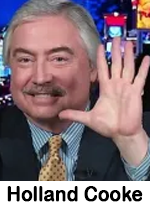 Possibly not – beginning Sunday – unless you live in Hawaii and Arizona (except the Navajo Nation) or American Samoa, Guam, the Northern Mariana Islands, Puerto Rico, or the U.S. Virgin Islands. Everywhere else, clocks will change when we “fall-back” on November 2.
Possibly not – beginning Sunday – unless you live in Hawaii and Arizona (except the Navajo Nation) or American Samoa, Guam, the Northern Mariana Islands, Puerto Rico, or the U.S. Virgin Islands. Everywhere else, clocks will change when we “fall-back” on November 2.
 Why we’re already seeing TV tout its coming attractions: They understand how, after Labor Day, routines settle in. Viewers will be ready to re-engage.
Why we’re already seeing TV tout its coming attractions: They understand how, after Labor Day, routines settle in. Viewers will be ready to re-engage. have ever consumed a podcast, 55% have consumed a podcast in the last month, and 40% have consumed a podcast in the last week, each measure being an all-time high; 2) Video podcast consumption has redefined the podcast landscape: Over half (51%) of the U.S. 12+ population has ever watched a video podcast; 37% have watched a video podcast in the last month and 26% have watched a video podcast in the last week. Those who actively watch video podcasts are younger and more diverse than those who only listen to audio-only podcasts; and 3) Podcasts offer high engagement and trust from listeners: 88% of weekly podcast consumers agree that hearing ads is a fair price to pay for free content; 68% say they don’t mind hearing ads on podcasts. You can see
have ever consumed a podcast, 55% have consumed a podcast in the last month, and 40% have consumed a podcast in the last week, each measure being an all-time high; 2) Video podcast consumption has redefined the podcast landscape: Over half (51%) of the U.S. 12+ population has ever watched a video podcast; 37% have watched a video podcast in the last month and 26% have watched a video podcast in the last week. Those who actively watch video podcasts are younger and more diverse than those who only listen to audio-only podcasts; and 3) Podcasts offer high engagement and trust from listeners: 88% of weekly podcast consumers agree that hearing ads is a fair price to pay for free content; 68% say they don’t mind hearing ads on podcasts. You can see  The addition of these stations fits perfectly into our late founder, my father, Thomas H. Draper’s motto that it is our moral obligation to serve our audience and advertising partners.” In a press release, Draper says it currently operates WBOC-TV, FOX21, WRDE-TV, Telemundo Delmarva, Antenna TV, My Cozi TV, The DSN Sports Network, and multiple FM radio stations across the Delmarva Peninsula. Speaking for seller Forever Media, president Lynn Deppen comments, “We are proud of the legacy these stations have built in their communities and grateful to our dedicated teams who have served listeners with passion and professionalism. We are confident that Draper Media shares our commitment to local broadcasting and will continue to provide outstanding service to audiences and advertisers alike as these stations enter an exciting new chapter.” The transaction is expected to close in the third quarter of 2025, subject to approval by the FCC.
The addition of these stations fits perfectly into our late founder, my father, Thomas H. Draper’s motto that it is our moral obligation to serve our audience and advertising partners.” In a press release, Draper says it currently operates WBOC-TV, FOX21, WRDE-TV, Telemundo Delmarva, Antenna TV, My Cozi TV, The DSN Sports Network, and multiple FM radio stations across the Delmarva Peninsula. Speaking for seller Forever Media, president Lynn Deppen comments, “We are proud of the legacy these stations have built in their communities and grateful to our dedicated teams who have served listeners with passion and professionalism. We are confident that Draper Media shares our commitment to local broadcasting and will continue to provide outstanding service to audiences and advertisers alike as these stations enter an exciting new chapter.” The transaction is expected to close in the third quarter of 2025, subject to approval by the FCC.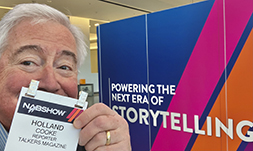 Radio sells advertisers our listeners’ attention. For a hundred years, our inventory has largely been commercials. Now, as our wandering audience leads us to more revenue channels, are we hooked on spots?
Radio sells advertisers our listeners’ attention. For a hundred years, our inventory has largely been commercials. Now, as our wandering audience leads us to more revenue channels, are we hooked on spots?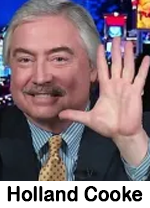 There has never been more news. And news has never been more quotable. It costs two-plus cents to make a penny.
There has never been more news. And news has never been more quotable. It costs two-plus cents to make a penny.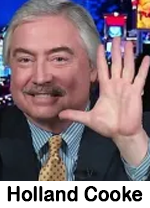 Observation, as a heavy CNBC viewer: Artificial Intelligence is to 2025 what Dot Com was to the late 1990s, game-changer… and shiny object.
Observation, as a heavy CNBC viewer: Artificial Intelligence is to 2025 what Dot Com was to the late 1990s, game-changer… and shiny object. Metrics and “Share of Ear” Report, MRI-Simmons, Screen Engine/ASI, Podscribe, and Magellan AI. Four of the key findings from this are: 1) Podcast ad campaigns are too light: No brand is coming close to “saturating” podcast audiences; Brands should allocate 5% of digital budgets to podcasting; 2) After five years with a median age of 33 to 34, podcast audiences finally age to 36, reflecting broader appeal with older audiences; 3) Screen Engine/ASI: Podcast audiences offer CTV advertisers significant incremental reach; and 4) Podcasts tighten their grip on audio audiences: Among podcast listeners, 35% of all audio time spent now goes to podcasts.
Metrics and “Share of Ear” Report, MRI-Simmons, Screen Engine/ASI, Podscribe, and Magellan AI. Four of the key findings from this are: 1) Podcast ad campaigns are too light: No brand is coming close to “saturating” podcast audiences; Brands should allocate 5% of digital budgets to podcasting; 2) After five years with a median age of 33 to 34, podcast audiences finally age to 36, reflecting broader appeal with older audiences; 3) Screen Engine/ASI: Podcast audiences offer CTV advertisers significant incremental reach; and 4) Podcasts tighten their grip on audio audiences: Among podcast listeners, 35% of all audio time spent now goes to podcasts.  number of retailers shopped, retailers shopped most often, brand perceptions, and advertising recall have recovered; 2) Brand equity and shopping patterns for the top two performers (AutoZone and O’Reilly Auto Parts) are stable to up. The second-tier players are slightly off; 3) AM/FM radio and podcasts are the ideal platforms to advertise auto aftermarket. TV underperforms with category usage and brand equity: Heavy AM/FM radio and podcast listeners visit more retailers in the category, make more shopping trips, and spend far more than the average. Two key consumer segments, do-it-yourselfers and ultra-heavy shoppers are more likely to be heavy AM/FM radio listeners. TV viewers are weak category users.
number of retailers shopped, retailers shopped most often, brand perceptions, and advertising recall have recovered; 2) Brand equity and shopping patterns for the top two performers (AutoZone and O’Reilly Auto Parts) are stable to up. The second-tier players are slightly off; 3) AM/FM radio and podcasts are the ideal platforms to advertise auto aftermarket. TV underperforms with category usage and brand equity: Heavy AM/FM radio and podcast listeners visit more retailers in the category, make more shopping trips, and spend far more than the average. Two key consumer segments, do-it-yourselfers and ultra-heavy shoppers are more likely to be heavy AM/FM radio listeners. TV viewers are weak category users.  Many Americans have been, in the two years since the Supreme Court punted the issue down to the states. For suburban women voters in swing states, it is – by far – the number one issue, per a Wall Street Journal poll. It tipped 2022 midterms and 2023 elections and swung other elections in battleground states.
Many Americans have been, in the two years since the Supreme Court punted the issue down to the states. For suburban women voters in swing states, it is – by far – the number one issue, per a Wall Street Journal poll. It tipped 2022 midterms and 2023 elections and swung other elections in battleground states.
 We – inside-the-box – live and breathe radio. Listeners have their hands full just living and breathing. Their day is time crunched and financially challenging, and we want to be its soundtrack.
We – inside-the-box – live and breathe radio. Listeners have their hands full just living and breathing. Their day is time crunched and financially challenging, and we want to be its soundtrack.
 Today, consultant Holland Cooke writes, “With 850-plus confirmed 2024 tornadoes – just halfway through the season – each night’s network TV newscast can make you “thankful that we don’t live THERE…” And with more gnarly weather on the way this week across much of the USA, he reckons that, “regardless of your format, your station can be the weather button that listeners will push, and advertisers can sponsor.” And he suggests a tactic proven over 80 years ago.
Today, consultant Holland Cooke writes, “With 850-plus confirmed 2024 tornadoes – just halfway through the season – each night’s network TV newscast can make you “thankful that we don’t live THERE…” And with more gnarly weather on the way this week across much of the USA, he reckons that, “regardless of your format, your station can be the weather button that listeners will push, and advertisers can sponsor.” And he suggests a tactic proven over 80 years ago.  says that key points for advertisers to know about podcast listeners include: 1) More people than ever are listening to podcasts: 67% of the 12+ population has ever listened to a podcast; 47% of the 12+ population are monthly podcast listeners and 34% are weekly listeners; 2) Listeners are spending more time than ever with podcasts: In 2014, out of the daily time spent listening to all audio by those age 13+, 2% was spent with podcasts. In 2024, that number more than quadrupled and podcasts now account for 11% of daily time with audio. Twenty-three percent of weekly podcast listeners spend 10 hours or more listening to the medium each week; and 3) Podcasts reach all generations: 29% of kids age 6-12, 59% of those age 12-34, 55% of those age 35-54, and 27% of those age 55+ are monthly podcast listeners.
says that key points for advertisers to know about podcast listeners include: 1) More people than ever are listening to podcasts: 67% of the 12+ population has ever listened to a podcast; 47% of the 12+ population are monthly podcast listeners and 34% are weekly listeners; 2) Listeners are spending more time than ever with podcasts: In 2014, out of the daily time spent listening to all audio by those age 13+, 2% was spent with podcasts. In 2024, that number more than quadrupled and podcasts now account for 11% of daily time with audio. Twenty-three percent of weekly podcast listeners spend 10 hours or more listening to the medium each week; and 3) Podcasts reach all generations: 29% of kids age 6-12, 59% of those age 12-34, 55% of those age 35-54, and 27% of those age 55+ are monthly podcast listeners.  Ratings – and advertisers’ results – reward what listeners remember, what sticks-out, not clichés that blend-in. So, avoid blah-blah-blah such as…
Ratings – and advertisers’ results – reward what listeners remember, what sticks-out, not clichés that blend-in. So, avoid blah-blah-blah such as…
 Pick a day, any day. At least one news item will have the little voice in your head hollering “TELL me you’re kidding!” After recent headlines, and as various plots thicken, that little voice might need a lozenge.
Pick a day, any day. At least one news item will have the little voice in your head hollering “TELL me you’re kidding!” After recent headlines, and as various plots thicken, that little voice might need a lozenge.
 Before the bound copy arrived – at which point all work stopped – Arbitron would send “Advances.” Even those topline numbers ground things to a halt, and had some PDs doing cartwheels, others out on the ledge. ‘Seems quaint now.
Before the bound copy arrived – at which point all work stopped – Arbitron would send “Advances.” Even those topline numbers ground things to a halt, and had some PDs doing cartwheels, others out on the ledge. ‘Seems quaint now.
 It’s not your imagination. The world has gone daffy. The USA is all-but boots-on-the-ground in rough neighborhoods around the world. Weather is getting even wackier. The next gun nut could open fire, at any moment, anywhere. 2024 campaign? It’s a long way to November. And even in this rebounding economy, supermarket prices still hit-home… if you can get there.
It’s not your imagination. The world has gone daffy. The USA is all-but boots-on-the-ground in rough neighborhoods around the world. Weather is getting even wackier. The next gun nut could open fire, at any moment, anywhere. 2024 campaign? It’s a long way to November. And even in this rebounding economy, supermarket prices still hit-home… if you can get there.
 Show” airs from 2:00 pm to 4:00 pm. Program director Kathryn Lake comments, “Wisconsinites will play a crucial role this year in determining who represents the state in Madison and in the nation’s capital. The experience Jane Matenaer, Todd Allbaugh and Maggie Daun bring to the midday microphones will provide listeners across the state compelling stories and important updates about what is happening in their communities and throughout Wisconsin.”
Show” airs from 2:00 pm to 4:00 pm. Program director Kathryn Lake comments, “Wisconsinites will play a crucial role this year in determining who represents the state in Madison and in the nation’s capital. The experience Jane Matenaer, Todd Allbaugh and Maggie Daun bring to the midday microphones will provide listeners across the state compelling stories and important updates about what is happening in their communities and throughout Wisconsin.” Other notable findings: 1) Older Americans and women are listening to podcasts at a faster rate, with a 22% increase in listeners over the age of 55 and a 19% increase in female listeners 18+ over the past two years; 2) Top podcast genres of 2023 were News (22% of downloads), True Crime (18%), and Comedy (15%). Of True Crime podcast listeners, 67% were female, of Comedy podcast listeners 62% were male, and of News podcast listeners 58% were male; 3) The top sales networks of 2023 in the Triton U.S. Podcast Ranker were SiriusXM Podcast Network at #1, NPR at #2, and Wondery at #3. The top podcast of the year was “NPR News Now.” Triton Digital SVP measurement products & strategy Daryl Battaglia says, “2023 was another year of significant growth for the podcast industry, and with increasing female and over 55+ audiences, we can expect more content production to serve those groups in the coming year. As podcast listenership continues to rise and reach new audiences, we’ll continue to provide our customers with in-depth insights around podcast consumption and listener habits in the coming year.”
Other notable findings: 1) Older Americans and women are listening to podcasts at a faster rate, with a 22% increase in listeners over the age of 55 and a 19% increase in female listeners 18+ over the past two years; 2) Top podcast genres of 2023 were News (22% of downloads), True Crime (18%), and Comedy (15%). Of True Crime podcast listeners, 67% were female, of Comedy podcast listeners 62% were male, and of News podcast listeners 58% were male; 3) The top sales networks of 2023 in the Triton U.S. Podcast Ranker were SiriusXM Podcast Network at #1, NPR at #2, and Wondery at #3. The top podcast of the year was “NPR News Now.” Triton Digital SVP measurement products & strategy Daryl Battaglia says, “2023 was another year of significant growth for the podcast industry, and with increasing female and over 55+ audiences, we can expect more content production to serve those groups in the coming year. As podcast listenership continues to rise and reach new audiences, we’ll continue to provide our customers with in-depth insights around podcast consumption and listener habits in the coming year.” 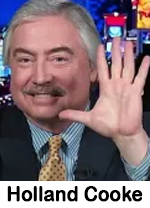 Take a day off. You get one free this year.
Take a day off. You get one free this year.
 “News Talk 1050” and two music brands. Townsquare regional vice president Robert Wawrzyniec says, “Mike is the ideal executive to lead Townsquare’s broadcast and digital operations in West Central Missouri. Most important, he knows the Sedalia market and what resonates with its listeners and advertisers. His expertise in creating, developing and executing exceptional local multi-platform solutions for advertising and marketing clients, as well as driving new business opportunities and forging important community partnerships, has resulted in deep client relationships and a strong commitment to listeners. I am looking forward to working with him in his new role.”
“News Talk 1050” and two music brands. Townsquare regional vice president Robert Wawrzyniec says, “Mike is the ideal executive to lead Townsquare’s broadcast and digital operations in West Central Missouri. Most important, he knows the Sedalia market and what resonates with its listeners and advertisers. His expertise in creating, developing and executing exceptional local multi-platform solutions for advertising and marketing clients, as well as driving new business opportunities and forging important community partnerships, has resulted in deep client relationships and a strong commitment to listeners. I am looking forward to working with him in his new role.” Research shows that readers to trade publications like articles with five bullet points. Here are my five bullet points for 2024. If these were to be deployed, you could be thriving by the end of the year. These actions would increase sales and audience share.
Research shows that readers to trade publications like articles with five bullet points. Here are my five bullet points for 2024. If these were to be deployed, you could be thriving by the end of the year. These actions would increase sales and audience share. You know the routine.
You know the routine.
 We have a saying around “The Mark Kaye Show” studio:
We have a saying around “The Mark Kaye Show” studio: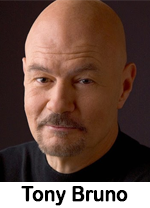 “Martinez & Company” (6:00 pm to 8:00 pm ET), with the early afternoon daypart to be announced. The press release states, TBSN will debut October 30th with LIVE programming every weekday with sports talk radio from 7am to 8pm to start. Additional time slots and weekend programming will be added over the following months. TBSN is available to listeners nationwide online via LIVE365.com and on the ‘Tony Bruno Sports Network’ app for Android and iPhone.” Bruno adds, “I want to thank all of my fans who have followed and supported me through the years. I am grateful to everyone who has encouraged me to return and who still want to hear my daily fun approach to sports and current affairs, which has been my forté for over five decades in broadcasting; this time, I’m bringing friends! I hear over and over again that fans are tired of X’s & O’s sports radio. I plan to bring back exciting, sports talk radio again, with a Florida flair. What better place to launch a new nationwide sports network than in Florida, a true melting pot of fans from all over the nation.”
“Martinez & Company” (6:00 pm to 8:00 pm ET), with the early afternoon daypart to be announced. The press release states, TBSN will debut October 30th with LIVE programming every weekday with sports talk radio from 7am to 8pm to start. Additional time slots and weekend programming will be added over the following months. TBSN is available to listeners nationwide online via LIVE365.com and on the ‘Tony Bruno Sports Network’ app for Android and iPhone.” Bruno adds, “I want to thank all of my fans who have followed and supported me through the years. I am grateful to everyone who has encouraged me to return and who still want to hear my daily fun approach to sports and current affairs, which has been my forté for over five decades in broadcasting; this time, I’m bringing friends! I hear over and over again that fans are tired of X’s & O’s sports radio. I plan to bring back exciting, sports talk radio again, with a Florida flair. What better place to launch a new nationwide sports network than in Florida, a true melting pot of fans from all over the nation.” Thanks to those who sent comments on last week’s column “
Thanks to those who sent comments on last week’s column “
 Thanks to those who sent comments on last week’s column “
Thanks to those who sent comments on last week’s column “
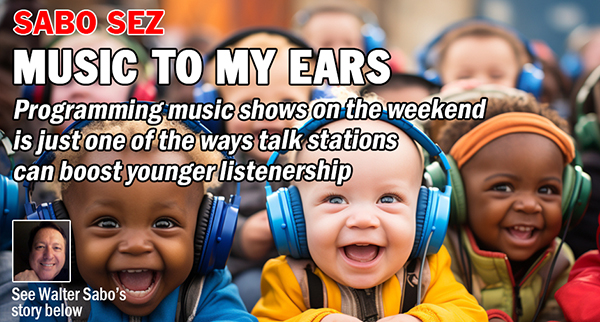
 The persistent liability of most talk stations is that they attract a high percentage of listeners over the age of 65. Consider that many of those older listeners are attracted to radio shows that are talking for companionship and comfort.
The persistent liability of most talk stations is that they attract a high percentage of listeners over the age of 65. Consider that many of those older listeners are attracted to radio shows that are talking for companionship and comfort.
 Wagoner writes, “Why is KFI so successful – isn’t conservative talk dead? Yes, it is… and it’s been decades since KFI was considered ‘conservative talk’ (even when it wasn’t). There have always been a balance of viewpoints on the station; as it moved away from politically centered topics to more general topics, it matched the mood of listeners who wanted to be entertained more than they wanted to be angry.”
Wagoner writes, “Why is KFI so successful – isn’t conservative talk dead? Yes, it is… and it’s been decades since KFI was considered ‘conservative talk’ (even when it wasn’t). There have always been a balance of viewpoints on the station; as it moved away from politically centered topics to more general topics, it matched the mood of listeners who wanted to be entertained more than they wanted to be angry.”  As this week’s first Republican presidential debate looms, my FOX News Radio-affiliated client stations are irked. Thanks to their network, they’re carrying it live, and locally sponsored, and promo-ing it aplenty. A couple of my clients will travel to Milwaukee to wrap pre- and post-game color around the play-by-play. So, yuh, they’re irked.
As this week’s first Republican presidential debate looms, my FOX News Radio-affiliated client stations are irked. Thanks to their network, they’re carrying it live, and locally sponsored, and promo-ing it aplenty. A couple of my clients will travel to Milwaukee to wrap pre- and post-game color around the play-by-play. So, yuh, they’re irked.